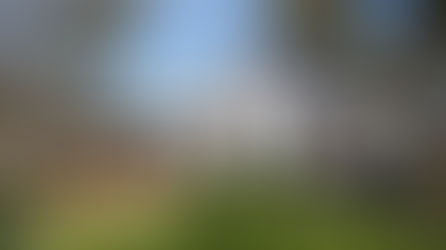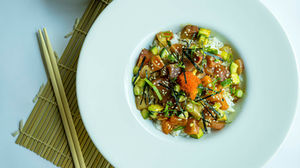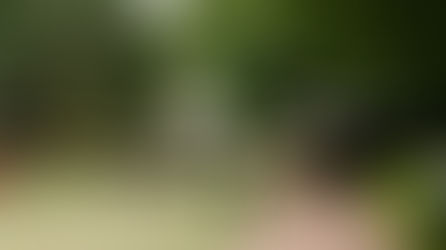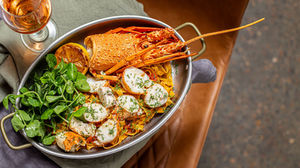Tintilla - A Family Affair
- Your Hunter Valley Magazine
- Aug 30, 2019
- 6 min read

When it comes to boutique vineyards, family is often the lifeblood of the operation. From growing the grapes and making the wine to serving in the cellar door to managing the books, it’s usually all-hands-on-deck at a family-owned and run winery. For the past 25 years, this has certainly been the case for one of the region’s best-kept secrets – Tintilla Estate – a picturesque 25-hectare estate located at the heart of Hunter Valley wine country on Hermitage Road, Pokolbin.
The vineyard, winery and olive grove were established by Sydney-based vascular surgeon Robert Lusby in 1994 and have grown into an award-winning destination producing distinctive, individual, single-vineyard wines and olive products.
This success comes down to the passionate commitment of all those involved according to Tintilla Estate winemaker – and Robert’s son – James.
“My parents always had an interest in wine and while living in California could see the potential of a small, dedicated, boutique winery,” James said.

“Tintilla started in 1993. We cleared the land, put in the dams, prepared the soil and planted the vineyard ourselves.
“Every member of our family is involved to some extent. My dad helps out with mainly viticultural things while my mum is active in the cellar door.
“I am the winemaker and manage the viticulture as well, my youngest brother John works in the cellar door, does the books and generally helps both in the winery and vineyard. My sister Justine helps with marketing, organising our presentation and also cellar door sales as does my brother Edward. Both Justine and Edward are part-time, having other jobs in Sydney.”
Much of Tintilla Estate’s commitment to traditional methods and values comes from Robert’s experiences overseas, where he saw firsthand the benefits of bringing wine and food together with family.
“Our travels in the USA and Europe have shown us that internationally the Europeans and especially the Tuscans and Burgundians, showed the way with integrating family, wine and food. We have sought to take this international experience and knowledge and do as well in the Hunter Valley,” Robert wrote on the Tintilla Estate website.
"At Tintilla, we believe that by selecting a region with a strong history where the public understands the regional traditions, by working as owner-vignerons producing small amounts of handmade wines and foods and (by) using personal sales we have built a relationship with our visitors that brings (customers) back year after year."
The winery cellar door certainly exhibits a wholesome family warmth, offering a truly memorable experience where you can take a seat in their tasting room, sip from a large Riedel glass and feast on a cheese platter stocked with an assortment of Tintilla condiments. All while looking out over the magnificent rolling vineyard towards a large dam at the bottom of the hill.
The picturesque site is surrounded by native trees and lined by olive trees. The olive grove is an important element of this grand estate and was extended in stages over the years, with the first olive trees going into the ground in 1994 before any of the vines were even planted.
There are five varieties in total including the initial Spanish varieties of Manzanillo and Sevillano, as well as the most popular olive, a small-berried Tuscan variety named Frantoio, which exhibits a delightful nutty flavour.
“We have over 500 olive trees planted in parts of the property that were not so suitable for grapes,” James said.
“We chose mainly eating varieties, although many are dual purpose. Manzanillo, Sevillano, Frantoio, Verdale and jumbo Kalamata are the main varieties.

“We cure and pickle them on the property and sell them in the cellar door. We also have an orchard from which we produce seasonal jams and relishes.”
The olives are handpicked, debittered and fermented prior to bottling with various traditional herbs and spices.
Tintilla also produces Caramelised Vinegars and a Vincotto, which incorporate unused tasting wines and the juice from pressings in their respective productions. The Caramelised Vinegar is aged in oak and then exposed to the variations in climate for over five years to concentrate the full, intense flavours before release.
Vincotto is an elixir made of grape must cooked with orange zest, cinnamon and nutmeg. Sweeter and thicker than vinegar, it has subtle overtones of spice and the richness of concentrated grape juice. As a condiment, small slurps are drizzled over roasts, and its versatility extends to dressing salads and fruits.
Not surprisingly though it is Tintilla’s wines that are the main attraction at the Estate, and were also the inspiration for its name.
“My parents chose the name Tintilla, which is a word used by the 17th-century writer Samuel Pepys in his diary interchangeably with claret to refer to red wine,” James said.
“We planted mainly red wines on our hillside block, so the name seemed appropriate.
"We are a single vineyard producer, with Shiraz on the hill slope, Merlot at the top of the hill, Sangiovese also on a hilly nob, while Semillon and Cabernet Sauvignon are planted on the creek bed flat. We grow the grapes and make the wine with passion!"
“We have been very lucky to have won a number of trophies and gold medals over the years, particularly with our aged Angus Semillon.
“We won a trophy for our Pebbles Brief Chardonnay 2016 for best-aged Chardonnay at the Hunter Valley Boutique Winemaker Show and a Top 100 in Winestate Magazine for our Reserve Shiraz 2017. These go with the trophies we have won over the years for our Merlot, Sangiovese and Shiraz.”
According to Tintilla Estate’s winemaking ethos, “good wine always starts with good grapes that reflect the natural balance between the land, the climate and the vines”.
The Estate aims to preserve the unique Hunter character found in their high-quality fruit by interfering as little as possible during the winemaking process.
James, John and their father Robert are passionate about the unique styles of wine that come from the Hunter terroir and seek to deliver true regional varietals from their single-vineyard wines. “Most of my training was done on the job, working under and learning from an outstanding winemaker, although I also did a TAFE diploma in viticulture with wine science,” James said.
“I have worked in the USA at a winery called Colombia Crest in Washington state. I came up from being a vineyard manager to winemaking, which I think gives you a much better understanding of the grapes and leads you into making better wines.
“Doing the viticulture ourselves (at Tintilla Estate) and ensuring high quality, we let the fruit speak for itself - not too much interference but striving for excellence.
“We do between 40-60 tonne of our fruit and an additional 20-40 tonne of contract winemaking here at Tintilla Estate.
“We produce Semillon, Chardonnay, Shiraz, Merlot, Cab Sav and Sangiovese of which we were the first to plant it here in the Hunter Valley.
“With these varieties, we make dry table wines, blends, sweet wine, sparkling, Rosé and fortified (Ports), something for everyone we hope.”
Their wines include classic Hunter Semillon, the Angus, grown on the creek bed soils; a soft and flavoursome long-lasting traditional Hunter Shiraz; and a highly rated Justine Merlot from the clay on limestone soils.
Tintilla pioneered Sangiovese in the Hunter, producing a Rosato di Jupiter, a straight Saphira Sangiovese as well as the Sparkling Rosalind Blush.
Chardonnay cuttings originally came to the Hunter directly from Clos du Vougeot vineyard in Burgundy in the 1830s and Tintilla makes Chardonnay with grapes taken off a heavily limestone-laden block two kilometres down the road, which gives the wine great varietal character.
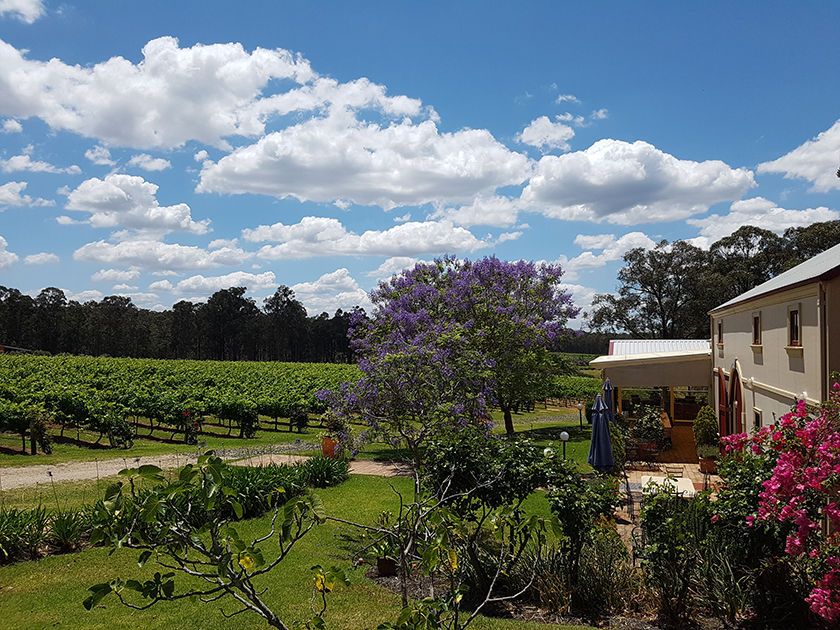
Tintilla Estate offers free tastings of their wines and olives seven days a week from 10.30am until 6pm, for groups of less than eight.
Private tasting experiences are available for groups of more than eight for only $5 per person, which includes a selection of boutique wines and a cheese and olive tasting plate (bookings recommended).
For the past 12 years, Tintilla Estate has also been hosting a series of long lunches, which have become events not to be missed.
The lunches feature four delicious courses matched with Tintilla Estate wines. Numbers are limited for the annual French Provincial Long Lunch in March and Tuscan Long Lunch in September, which have gained a firm following over the years and always sell out in advance.
The next lunch will be held on Saturday, September 28 from 12.30pm to 4pm, with tickets costing $95 for club members and $105 for non-members.
Those interested in wine beyond the tasting experience should also check out www.tintilla.com.au, where Robert pours his passion for history and the wine industry itself into a fascinating regular blog.






